The Legend of Korra

Book 2: Change
The third season of The Legend of Korra is definitely my favorite, in large part to how much the Avatar and her friends have grown. It's also in large part to the stunning animated fight scenes littering the episodes, as well as the emergence of a world that sets to bring balance not only between bending elements and non-benders, but between the spirit and human worlds, too.
Also, because one of my favorite characters from Avatar: The Last Airbender resurfaces in this season. Whilst clearly not at his prime, I still think he's the bee's knees and can always be depended upon to bring a bit of spark into my day. Hem hem.
As usual, spoiler alert. If you haven't watched Avatar: The Last Airbender or the previous seasons of The Legend of Korra, you may not want to read this review, because I will be mentioning stuff. Things. Stuff-things.
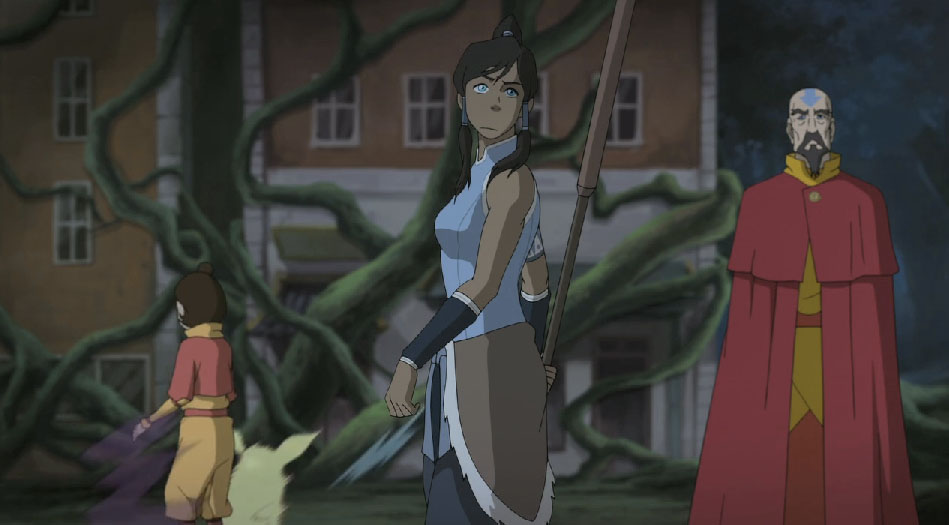
"Book 3: Change" is aptly titled, because it continues a few weeks after "Book 2: Spirits." In the previous season, Korra makes a decision that changes the world--I mean, literally changes the world--, opening up the spirit portals onto the mortal realm. Now, in the aftermath of it, season 3 deals with many changes, some of them good, others chaotic, still others much more dangerous than they look. Korra is banished from Republic City after numerous failed attempts to dispel spirit-vines from destroying the buildings. In some way, this banishment works in her favor, as she takes it upon herself to help Tenzin with his new goals, as well as to travel the world doing so.
If that was the only thing ominous about this season, guess again. Suddenly, in small pockets of Earth Kingdom, a few non-benders are able to Airbend, and it is up to Tenzin and his airbending nomads to recruit them into re-forming the long-lost Air Nation. Unfortunately, not all new airbenders are set out to rejoin the flock. One of them happens to be a dangerous criminal with powerful ideals and equally dangerous and powerful friends.
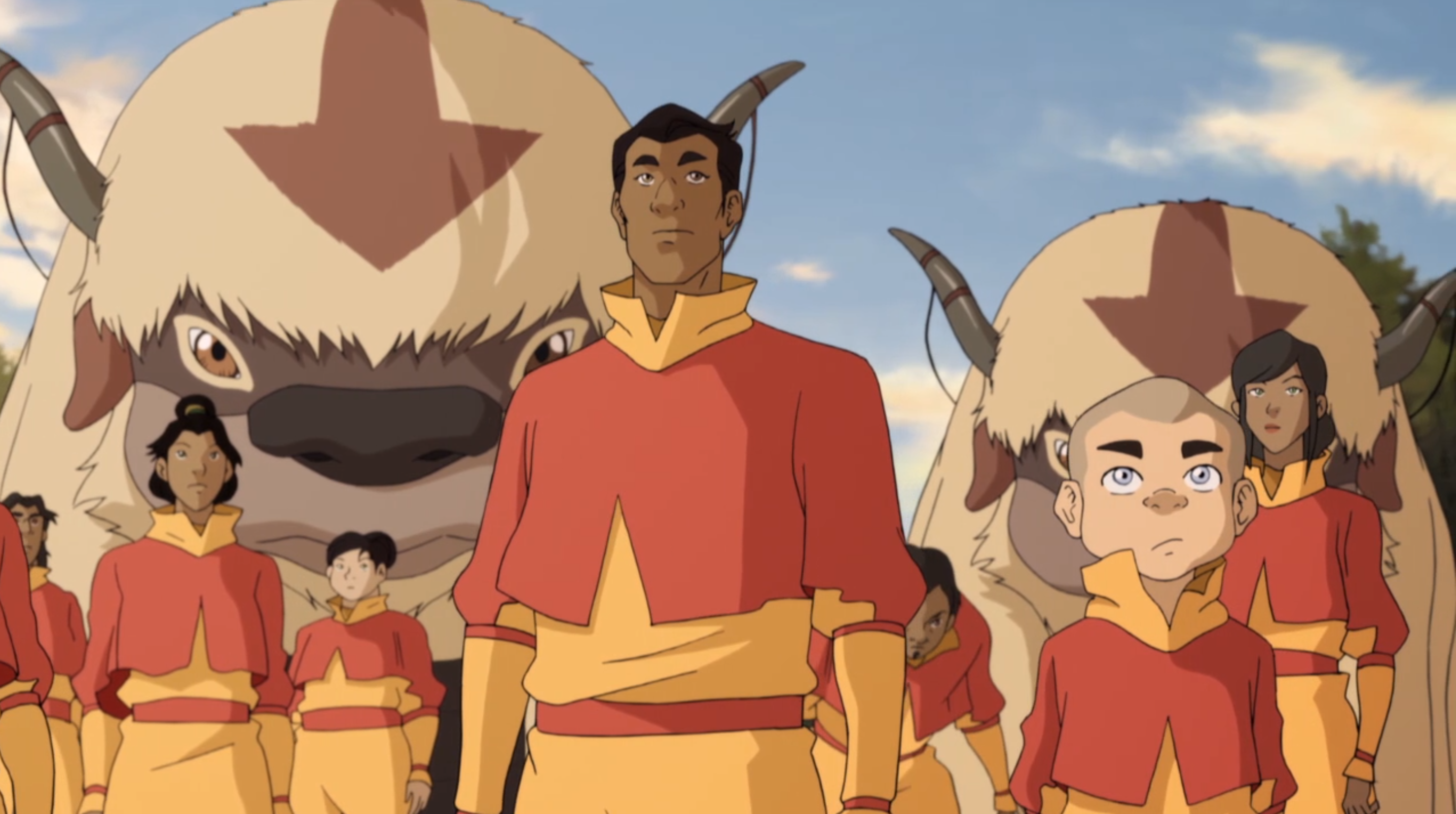
In a nutshell, Korra's got her work cut out for her. And, to be honest, without her support group and the newly-made Airbenders, I don't think she would have made it out of this season alive. That would have definitely spelled doom.
So. This season.
As I've said in the beginning of the review, I loved Book 3, and as far as The Legend of Korra went, this was by far my absolute favorite of the series. Book 3 hinged on many themes that I've always loved to see take fruit in Korra's story, some of which were major elements within AtLA: friendship, family, teamwork, physical and emotional growth, adapting to change, and redemption. Book 3 had the added benefit of stunning fighting animation, which pretty much existed throughout the season, and to be honest, I don't think I've seen anything better at this point.
It also had four amazingly diabolical villains. I'll get to that in a bit.
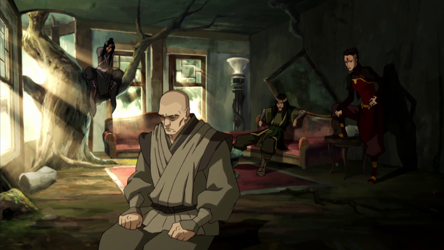
In Book 2, we were introduced to Unalaq, a man whose sole ambition was to free Vaatu (the evil dark spirit) from his prison and join with him to end Raava's Avatar Cycle and become the "new Avatar." After being vanquished by Korra, part of Unalaq's goal was still realized during the day of Harmonic Convergence, and the spirit world was open to the mortal realm. Unalaq himself was a radical man, and, in Book 3, it becomes evident that he's not the only one who has taken issue with how the Avatar worked in the world.
Enter the Red Lotus, an organization hellbent on finishing the Avatar Cycle for good. This posed a problem in the past, especially during the precarious time between Aang's death and the birth of the new Avatar. As a child, Korra had limits in the way of protecting herself, and it took the organized determination of key White Lotus members to apprehend the Red Lotus and imprison them in specialized prisons.
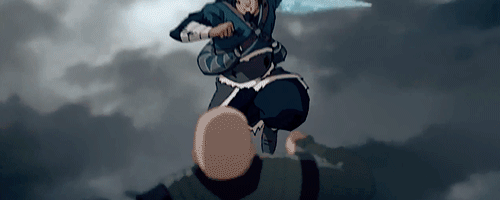
I cannot in all honesty say that the Red Lotus is purely evil. Nobody in the Avatar world is truly that, not even Vaatu. The Red Lotus is an organization of dissidents with radical ideas. In some ways, Zaheer's ideals strike at the heart of the problem with the Avatar and the leaders of the Avatar world. When push comes to shove, Zaheer and his Red Lotus fight fire with fire. While their intent comes off as a spiel about the "greater good", it is clear that achieving their ends leads them to brutal means: kill the leaders of the world, kill the Avatar and her Cycle. As an organization, the Red Lotus is scary as frell, and each of the key members is a powerful--and specialized--bender in his or her own right (I mean...lawd, I would not want to go against P'Li for anything).
Book 3 focused not just on the Avatar, but on the people around her. Tenzin and Lin Beifong are given particular roles within the coming battles ahead, as are Tonraq (Korra's father) and the whole Beifong metal-clan in the beautiful metal city of Zaofu (HELL YES THERE IS A BEIFONG METAL-CLAN IN ZAOFU). The season also focused on the power of many, and the resurgence of an airbending nation.
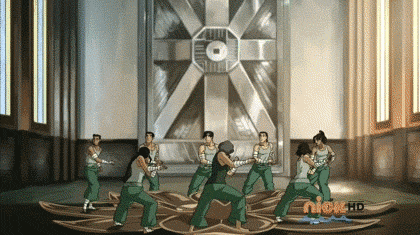
So, yes. Book 3 had a powerfully-packed story and an incredible medium to tell this story. The fight scenes between benders--specialized and non-specialized--were phenomenal and fluid and intense. There were scenes that made me cringe. There were scenes that made me afraid for the characters I got attached to. I honestly don't think I've squeed so much over an Avatar-related season since AtLA's "Book 4: Fire," but I can say now that "Book 3: Change" can hold a candle to that season. Yes, even when there is still little firebending involved.





